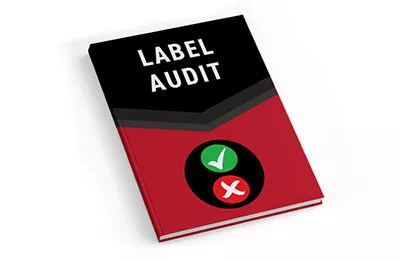
Labeling Audit
Under the Legal Metrology (Pre-packed Commodity) Rules 2011, it is mandatory for entities selling products in packed form to declare specific information on the packets, enabling consumers to be informed about the product they are purchasing. This information includes the name and address of the manufacturer, packer, or importer. In the case of imported items, it should include the name of the importer, date of manufacturing, quantity details, and other required information as outlined in these rules. The objective behind this declaration is to inform consumers about the product they are purchasing and ensure they receive value for their money.
Now, let’s understand what a labeling audit is and why it holds significance.
Labeling Audit: As there is no statutory provision governing the audit procedure and reporting requirements for labeling, it becomes a matter of practice followed by business entities to avoid heavy fines and penalties resulting from non-compliance with disclosure requirements on labels. When defining a labeling audit, it involves a procedure where the label of a packed commodity is checked and inspected to ascertain whether it contains and discloses all mandatory information prescribed under the Legal Metrology (Pre-packed Commodity) Rules 2011.
Statutory Requirement: Looking into the provision of Section 18 of the Legal Metrology Act 2009, which focuses on the declaration requirements for pre-packaged commodities, it mandates that no person shall manufacture, pack, sell, import, distribute, or possess for sale any pre-packaged commodity unless certain standards, declarations, and particulars specified by the Act are adhered to.

Consequences of Noncompliance:
Failure to disclose the required information on the package as prescribed under the Legal Metrology (Pre-packed Commodity) Rules 2011 could result in fines, penalties, or in some cases, imprisonment.
Section 36 of the Legal Metrology Act 2009 outlines the penalties for offenses related to Declarations on Packages as follows:
Individuals or entities involved in manufacturing, packing, importing, selling, distributing, delivering, transferring, offering, exposing, or possessing for sale any pre-packaged commodity that doesn’t conform to the declarations specified in the Act are liable for penalties:
- First Offense: Fine up to twenty-five thousand rupees.
- Second Offense: Fine up to fifty thousand rupees.
- Subsequent Offenses: Fine not less than fifty thousand rupees, extending up to one lakh rupees, or imprisonment for up to one year, or both.
Conclusion:
To avoid such penalties, it becomes crucial for entities selling pre-packed commodities to ensure the required disclosures on packages. This practice not only saves money but also enhances reputation and creates a better brand image, providing a competitive advantage. The expenses incurred on labeling audits should not be considered as expenses; instead, they should be regarded as investments in good governance and corporate image.


